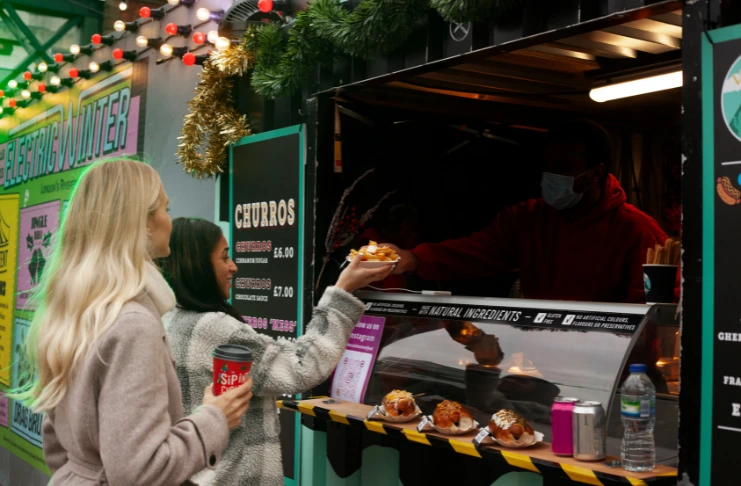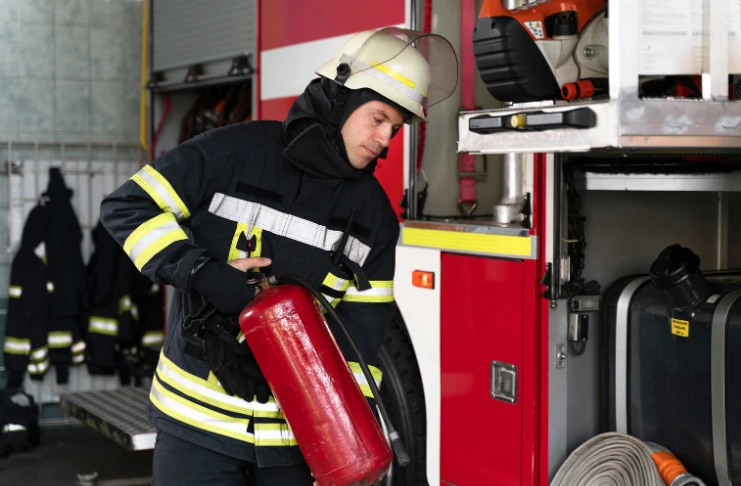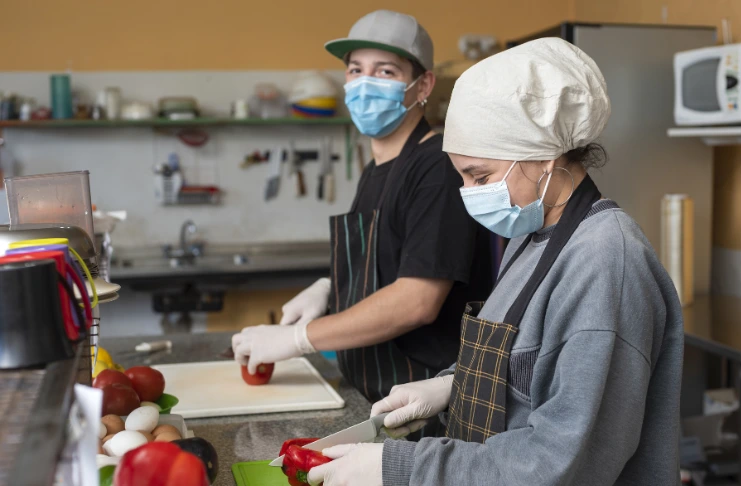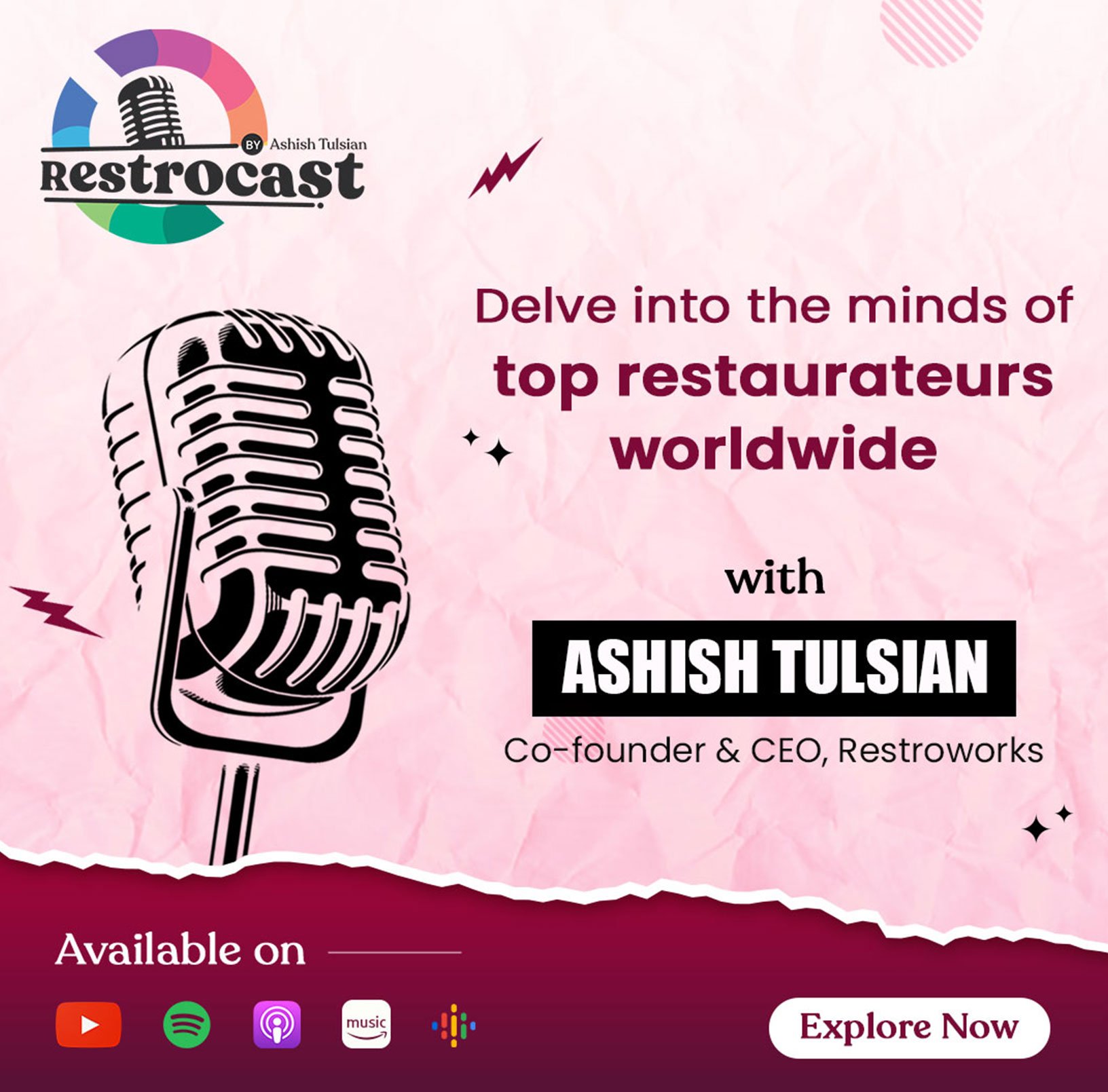
The food truck business in Mumbai is booming. From gourmet burgers to fusion dosas, food trucks offer a dynamic alternative to traditional restaurants. But before you rev up your engine and start serving hungry customers, there’s a critical step you can’t skip: licensing.
Starting a food truck involves more than just a great menu and a second-hand truck. It requires careful planning, legal compliance, and a clear understanding of the permits and fees involved. This guide breaks down everything food truck owners need to know, from the types of licenses required to the costs and process of attaining them.
Why Start a Food Truck in Mumbai?
Mumbai’s bustling streets, diverse population, and love for street food make it a fertile ground for launching a food truck business. The city’s fast-paced lifestyle fuels demand for quick, affordable, and flavorful meals, making mobile kitchens a perfect fit. Unlike traditional restaurants, food trucks offer flexibility, lower startup costs, and the ability to reach customers across multiple locations. Here’s why Mumbai is ideal for food truck entrepreneurs:
- Lower Startup Costs: You can start with as little as ₹1.6 lakhs, including a second-hand truck and basic kitchen setup.
- Mobility & Flexibility: Operate in high-footfall areas like college campuses, business districts, and weekend markets.
- Diverse Customer Base: Serve everything from fusion Indian snacks to global cuisines, catering to varied tastes.
- Growing Industry: India’s food truck market is projected to grow from USD 165 million in 2024 to USD 280 million by 2030, at a CAGR of 9.23%.
- Social Media Friendly: Food trucks thrive on Instagram-worthy dishes and viral marketing, helping build brand visibility quickly.
Types of Food Trucks in Mumbai
Food trucks in Mumbai cater to a wide range of tastes:
- Street Food Trucks: Street food trucks are the heart of Mumbai’s mobile culinary scene. They serve beloved local favorites like vada pav, chaat, momos, and dosas, often with a creative twist. These trucks are popular among college students and office-goers looking for quick, affordable meals. Many operate in high-footfall areas like Bandra, Andheri, and Thane.
Trucks like Street Food Co. and Darjeeling Momos and More blend Indian flavors with global street food trends, offering dishes like keema hot dogs and cheese dosas. These trucks require a business license, FSSAI registration, and health department clearance to operate legally.
- Gourmet Trucks: Gourmet food trucks elevate the street food experience by offering premium dishes like sushi rolls, wood-fired pizzas, and fusion tacos. These trucks cater to foodies seeking restaurant-quality meals on the go. Bombay Food Truck and The Rolling Kitchen are standout examples, serving items like mac and cheese, hot dogs and pesto pasta.
Gourmet trucks often use high-end ingredients and focus on presentation, making them ideal for upscale events or corporate zones. They require a commercial driver’s license, a fire department NOC, and often operate from a commissary kitchen to maintain quality and hygiene.
- Dessert Trucks: Dessert trucks specialize in sweet treats like waffles, cupcakes, cookies, and ice cream. They’re a hit at night markets, festivals, and near college campuses. Sweetish House Mafia and Waffles on Wheels are popular dessert trucks in Mumbai, known for indulgent offerings like Nutella sea salt cookies and red velvet sandwiches.
These trucks often have a strong social media presence to attract customers and showcase their visually appealing desserts. Licensing includes FSSAI approval, health certificates, and fire safety compliance, especially for trucks using baking equipment.
- Event-Based Trucks: Event-based food trucks operate at weddings, corporate gatherings, festivals, and private parties. They offer customizable menus and cuisines ranging from Indian to Continental. Companies like CaterNinja and PartyOne provide food trucks for hire, complete with staff and setup.
These trucks are designed for high-volume service and can cater to 200–300 guests per event. They require temporary permits, location-specific approvals, and coordination with event organizers. Event-based trucks are ideal for entrepreneurs looking to scale their food truck business without daily street operations.
Essential Licenses & Permits

To operate legally and safely, food truck owners must obtain several licenses and permits. Each serves a specific purpose and ensures compliance with local, state, and national regulations. Here’s a breakdown of must-have permits and their typical costs:
1. FSSAI License – Food Safety Compliance
The Food Safety and Standards Authority of India (FSSAI) license is mandatory for any business involved in food production, handling, or sale. It certifies that your food truck meets hygiene and safety standards. Depending on your annual turnover, you may need a basic registration, state license, or central license. Without this, your food truck cannot legally serve food.
Cost: ₹100–₹7,500
2. Trade License – Legal Business Operation
Issued by the BMC (Brihanmumbai Municipal Corporation), the trade license allows you to operate a commercial business within city limits. It confirms that your food truck complies with local zoning laws and business regulations. This license is essential for avoiding fines and shutdowns.
Cost: ₹5,000
3. Fire Safety Certificate – Hazard Prevention
Since food trucks use gas stoves, fryers, and electrical appliances, a Fire Safety Certificate from the Maharashtra Fire Services is crucial. It ensures your truck is equipped with fire extinguishers, proper ventilation, and safe cooking setups. The fire department inspects your truck before issuing a No Objection Certificate (NOC).
Cost: ₹2,000
4. Health Certificate – Hygiene Standards
Issued by the Public Health Department, this certificate verifies that your food truck maintains sanitary conditions. It includes inspections of your commissary kitchen, food storage, and waste disposal systems. This is vital for protecting public health and building customer trust.
Cost: ₹3,000
5. Vehicle Registration – Commercial Use Approval
Your food truck must be registered with the Regional Transport Office (RTO) as a commercial vehicle. This includes obtaining a commercial driver’s license if required. It ensures your truck meets road safety standards and is legally allowed to operate in public areas.
Cost: ₹1,500
6. Shop & Establishment License – Labor Law Compliance
If you hire staff, you’ll need a Shop & Establishment License under the Maharashtra Shops and Establishments Act. It governs working hours, employee rights, and workplace conditions. This license is crucial for maintaining ethical labor practices and avoiding legal issues.
Cost: Varies by workforce size
7. GST Registration – Tax Compliance
If your annual turnover exceeds ₹20 lakhs (₹40 lakhs for goods), you must register for Goods and Services Tax (GST). This allows you to collect and remit taxes legally, issue GST invoices, and claim input tax credits. GST registration is free and can be done online.
Cost: Free
Step-by-Step Licensing Process

Here’s how food truck owners can navigate the licensing process:
1. Business Registration
Before diving into the food truck world, you must legally register your business. This step gives your venture a formal identity and allows you to operate under recognized business structures. Why It’s Important:
- It establishes your food truck as a legal entity.
- Enables you to open a business bank account.
- Required for tax filings and other licenses.
How to Register:
- Choose a structure: Sole Proprietorship (simple, low cost), Partnership (if co-owned), or Private Limited Company (for scalability).
- Apply through the MCA portal: For companies, register via the Ministry of Corporate Affairs.
- Get a Certificate of Incorporation (for companies) or GSTIN (if applicable).
- Documents needed:
- PAN card
- Aadhaar card
- Address proof
- Business name and nature
2. FSSAI License
The Food Safety and Standards Authority of India (FSSAI) license is mandatory for any food business in India, including mobile food trucks. It ensures that your food truck complies with national hygiene and safety standards. Why It’s Important:
- Legally required to sell or serve food.
- Builds customer trust by certifying food safety.
- Protects your business from penalties and shutdowns.
How to Apply:
- Visit the FSSAI portal: https://foscos.fssai.gov.in
- Choose the right license type:
- Basic Registration: For turnover below ₹12 lakhs.
- State License: For ₹12 lakhs–₹20 crores.
- Central License: For turnover above ₹20 crores or interstate operations.
- Submit documents:
- Identity proof
- Address proof
- Business registration certificate
- Food truck layout and menu
- Pay the fee: ₹100–₹7,500 depending on license type.
3. Municipal Approval
Once your business is registered and you’ve applied for an FSSAI license, the next crucial step is obtaining municipal approval from the Brihanmumbai Municipal Corporation (BMC). This ensures your food truck complies with local zoning laws and is authorized to operate in public spaces. Why It’s Important:
- Legally allows you to operate in designated zones across Mumbai.
- Prevents fines or forced shutdowns by local authorities.
- Ensures your truck doesn’t disrupt traffic or violate public safety norms.
How to Get Approval:
- Submit your business plan: Include your truck layout, menu, and proposed operating zones.
- Apply through BMC’s central purchase department: As per the new policy, only 50 food trucks are permitted across Mumbai’s seven zones.
- Get NOCs: You’ll need No Objection Certificates from the traffic, fire, and health departments.
- Participate in tenders: Locations are allocated via a bidding process.
4. Health Department Clearance
Health department clearance is a critical step in ensuring your food truck meets public hygiene and sanitation standards. In Mumbai, this license is issued under Section 394 of the Mumbai Municipal Corporation Act (MMC) and is mandatory for all food vendors, including mobile kitchens. Why It’s Important:
- Certifies that your food truck and commissary kitchen follow hygiene protocols.
- Prevents foodborne illnesses and contamination.
- Required for FSSAI license approval and municipal operation.
How to Apply:
- Visit the MCGM portal: Apply online under the “Citizen Services” section.
- Submit required documents:
- Kitchen layout and sanitation plan
- Details of food preparation and storage
- Identity and business registration proof
- Inspection: A sanitary inspector will visit your truck and kitchen to verify cleanliness and food safety practices.
- Fee: ₹3,000 (approx.), varies based on product type and area.
5. Fire Department NOC

A Fire No Objection Certificate (NOC) is mandatory for food trucks using gas stoves, fryers, or electrical cooking equipment. Issued by the Mumbai Fire Brigade, it certifies that your truck complies with fire safety norms and is equipped to prevent and respond to fire hazards. Why It’s Important:
- Ensures safety for staff and customers.
- Required for municipal approval and trade license.
- Protects your business from liability in case of fire incidents.
How to Apply:
- Prepare a fire safety plan: Include extinguisher placement, ventilation, and escape routes.
- Submit application: Online via the Maharashtra Fire Services portal.
- Documents required:
- Truck layout and equipment details
- Ownership proof
- Authorization letter (if applying via a consultant)
- Inspection: Fire officials will inspect your truck before issuing the NOC.
- Fee: ₹2,000 (approx.), varies by setup and location.
6. Vehicle Registration
Your food truck must be registered as a commercial vehicle with the Regional Transport Office (RTO). This ensures your truck is legally recognized for business use and meets road safety standards. Key Requirements:
- Commercial Registration Certificate from RTO
- Vehicle Fitness Certificate confirming roadworthiness
- Pollution Under Control (PUC) certificate
- Insurance: Commercial vehicle insurance is mandatory
- Road Permit: Needed if you plan to operate across districts or states
How to Apply:
- Visit your local RTO or apply via the Parivahan portal
- Submit documents including:
- Vehicle purchase invoice
- ID and address proof
- Food truck layout and modifications (if any)
- Pay applicable fees (approx. ₹1,500–₹3,000 depending on vehicle type).
7. Shop & Establishment License
To ensure public health and hygiene, you must obtain a Health License from the Municipal Corporation of Greater Mumbai (MCGM) under Section 394 of the Mumbai Municipal Corporation Act. Why It’s Required:
- Certifies that your food truck meets sanitation and hygiene standards.
- Mandatory for handling and serving food to the public.
- Required for municipal trade license approval.
How to Apply:
- Visit the MCGM portal and fill out the Common Application Form under Citizen Services.
- Upload required documents:
- Truck layout and kitchen setup
- Water source and waste disposal plan
- FSSAI license copy
- Owner ID and address proof
- Pay applicable fees (varies by food type and truck size).
- Await inspection by a Sanitary Inspector or Medical Officer of Health (MOH).
- This is typically valid for 1 year and must be renewed annually.
INDUSTRY INSIGHT
In Mumbai, there are an estimated 250,000 street vendors, yet only about 14,000 hold official licenses, meaning over 90% operate without formal permits. This stark gap reflects the city’s complex regulatory environment, where obtaining licenses can be time-consuming and unclear, especially for mobile businesses like food trucks.
For aspiring food truck owners, this underscores the importance of careful planning and securing the right business license early. Legal compliance not only avoids penalties but also builds trust, paving the way for a successful food truck business in Mumbai’s competitive culinary market.
Location-Specific Rules in Mumbai
Mumbai’s food truck policy, finalized by the BMC, imposes strict zoning regulations to ensure public safety, fair competition, and minimal disruption to residents. Only 50 food trucks are permitted citywide, distributed across seven zones. Trucks must operate in designated high-footfall areas such as parks, tourist spots, and educational institutions. However, food trucks are prohibited from operating:- Within 200 meters of existing restaurants
- Near schools, hospitals, and residential colonies
- Inside heritage zones
Budget Breakdown
Here’s a rough estimate of the costs involved in starting a food truck in Mumbai:|
Item |
Estimated Cost |
|
Second-hand truck |
₹1,00,000–₹1,50,000 |
|
Kitchen equipment |
₹50,000–₹1,00,000 |
|
Licenses & permits |
₹15,000–₹25,000 |
|
Branding & signage |
₹10,000 |
|
Initial inventory |
₹20,000 |
|
Commissary kitchen rental |
₹5,000–₹10,000/month |
Total initial investment: ₹2–₹3 lakhs
Common Challenges & Solutions
1. Legal Hurdles
Starting a food truck in India involves navigating a maze of permits, licenses, and local regulations. Entrepreneurs often face delays due to unclear guidelines and slow bureaucratic processes. This can stall operations and increase costs. To overcome this, hiring a legal consultant or using online platforms can streamline documentation and ensure compliance.
These services help with FSSAI registration, trade licenses, GST filing, and more. Staying updated with municipal rules and maintaining proper records also reduces the risk of penalties or shutdowns. Legal clarity is essential for long-term sustainability and smooth operations.
2. Parking & Zoning
Securing legal parking spots for food trucks is one of the biggest operational challenges. Municipal zoning laws often restrict trucks from operating near schools, hospitals, or residential areas. This limits access to high-traffic zones. To navigate this, food truck owners can collaborate with event organizers, mall operators, or private landowners to park in permitted areas.
Participating in festivals, fairs, or corporate events also ensures visibility without violating zoning laws. Some cities offer designated food truck zones, so staying informed about local policies is crucial. Strategic partnerships and flexible scheduling can help maximize reach while staying compliant.
3. Waste Management

Improper waste disposal not only harms the environment but can also result in hefty fines and license cancellations. Food trucks must manage both solid and liquid waste responsibly. Using biodegradable packaging, compostable utensils, and segregated bins can reduce environmental impact. Partnering with local waste collection services ensures regular pickup and proper disposal.
Some municipalities require trucks to submit a waste management plan during licensing. Training staff on hygiene and sustainability practices further enhances compliance. A clean and eco-conscious operation not only meets legal standards but also builds customer trust and brand reputation.
4. Customer Engagement
In a competitive market, attracting and retaining customers requires more than just good food; it demands a strong digital presence. Social media platforms like Instagram, Facebook, and WhatsApp are powerful tools for marketing. Regular posts showcasing menu items, behind-the-scenes content, and customer testimonials can build a loyal following.
Engaging with followers through polls, contests, and prompt replies boosts visibility. Offering limited-time promotions, combo deals, or loyalty programs can drive footfall. Geo-targeted ads and food delivery apps also expand reach. A vibrant online persona helps food trucks stand out and stay top-of-mind for hungry customers.
Tips for a Successful Food Truck Business

Launching a successful food truck requires thoughtful planning, consistent quality, and smart marketing. It’s not just about serving delicious food, it’s about creating a brand that resonates with your audience and adapts to changing demands.
- Careful Planning: Choose your cuisine based on local tastes and trends. Select high-footfall locations like parks, office zones, or event venues. Align your operating hours with peak customer activity: lunch near offices, evenings near tourist spots.
- Quality & Hygiene: Maintain strict hygiene standards to build trust and comply with FSSAI regulations. Use fresh ingredients, train staff regularly, and keep your truck spotless. Customers notice and reward clean operations.
- Marketing: Leverage social media platforms like Instagram, Facebook, and Google Maps to promote your truck. Post mouthwatering photos, share your location updates, and engage with followers through comments and stories.
- Flexibility: Be ready to adapt your menu based on seasonal ingredients or customer feedback. Also, consider relocating for festivals, pop-ups, or high-traffic events to maximize visibility.
- Networking: Join food truck associations and collaborate with other vendors. Participating in local festivals and markets helps you connect with new customers and stay informed about industry trends.
Legal Benefits of Compliance
Operating legally offers several advantages:
- Avoids fines and shutdowns
- Builds customer trust
- Enables partnerships with delivery platforms
- Facilitates expansion to other cities
- Qualifies for business loans and grants
Profit Potential and Recovery
The earning potential of a food truck business in India, especially a food truck in Mumbai, can be quite promising when managed well. For a strategically placed truck in a high-footfall area, daily sales often range between ₹8,000 and ₹20,000. Assuming a profit margin of 15–25% after deducting expenses like fuel, ingredients, salaries, and permits, this could translate into a monthly revenue of around ₹4.5 lakh, with net profits between ₹67,500 and ₹1.1 lakh.
The numbers can rise sharply during peak seasons, special events, or food festivals. During such occasions, some food truck owners report making ₹1–2 lakh in a single day (Indian Food Times). These events offer a unique chance to attract customers in large volumes, often at higher price points driven by high demand.
With careful planning, controlling operating costs, and maintaining a strong social media presence to market their location and menu, many operators manage to recover their initial investment, whether from a new vehicle or a second-hand truck, within 12 to 18 months. For a successful food truck business, consistent sales, smart budgeting, and tapping into lucrative events are the keys to rapid recovery.
Conclusion
Starting a food truck in Mumbai is an exciting venture, but it demands more than just culinary passion. From securing a business license to obtaining fire department clearance, every step matters. With careful planning and a focus on compliance, food truck owners can build a successful food truck business that rivals traditional restaurants in popularity and profitability.
Whether you’re buying a second-hand truck or setting up a commissary kitchen, remember: legal groundwork is the foundation of long-term success. And with Mumbai’s ever-growing appetite for street food, the road ahead looks promising.
Frequently Asked Questions
The cost of a food truck license in Mumbai varies depending on the type of permits required. On average, the FSSAI license costs ₹100–₹7,500 based on turnover, while a trade license from the municipal corporation is around ₹5,000. Additional permits like fire safety and health certificates may cost ₹2,000–₹3,000 each. Overall, food truck owners should budget ₹15,000–₹25,000 for licensing alone.
No, you cannot park your food truck anywhere in Mumbai. The BMC’s food truck policy allows trucks only in designated zones, with a cap of 50 trucks across the city. Trucks must maintain a 200-meter distance from existing traditional restaurants and require approval from ward-level committees. Parking near schools, hospitals, or residential areas is restricted. Careful planning and location-specific permits are essential for a successful food truck business.
Starting a food truck in India typically requires ₹12–₹25 lakhs, depending on whether you buy a new or second-hand truck, and the level of customization. This includes costs for kitchen equipment, branding, initial inventory, and licenses. Monthly operating expenses like fuel, wages, and commissary kitchen rental range from ₹50,000 to ₹80,000. With careful planning, you can reduce costs and still build a successful food truck business.
To open a food truck business in Mumbai, start by registering your business and securing key licenses: FSSAI, trade license, fire department NOC, and vehicle registration. Choose a high-footfall location and design a compact, hygienic kitchen layout. Renting a commissary kitchen for prep and storage is recommended. Build a strong social media presence to attract customers and stay compliant with BMC’s food truck policy.
Yes, food trucks are allowed in Mumbai under the BMC’s official policy, which permits 50 trucks to operate 24×7 across seven zones. However, food truck owners must obtain all necessary licenses and follow strict zoning rules. Trucks must be at least 200 meters away from existing traditional restaurants and require approvals from health, fire, and transport departments. This policy aims to promote legal and hygienic mobile food services.
To run a food truck in India, you need multiple licenses:
- FSSAI license for food safety
- Trade license from the local municipality
- Fire department NOC
- Commercial driver’s license and vehicle registration
- GST registration (if turnover exceeds ₹40 lakhs)
- Shop & Establishment license (if hiring staff) These ensure your food truck business meets legal and hygiene standards.








